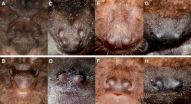Study defines clinical trials likely to exclude patients with brain metastases
2015-09-09
(Press-News.org) Non-small cell lung cancer frequently spreads to the central nervous system (CNS), but patients with CNS metastases may be excluded from clinical trials of new drugs. A University of Colorado Cancer Center study being presented at the 16th World Conference on Lung Cancer reveals the full extent to which the CNS may be under-explored in clinical research.
The study combed the website ClinicalTrials.gov to identify 413 open lung cancer clinical trials. Overall, 41 percent of trials only included patients if their CNS disease was previously treated. Twenty-six percent allowed in patients with CNS involvement and no previous treatment. Fourteen percent excluded all patients with a history of brain spread and nineteen percent of trials did not comment on any criteria related to CNS disease at all.
When multiple different subcategories of clinical trial were considered, only the sponsor of the trial was significantly associated with strict CNS exclusion, with university-sponsored trials being significantly less likely to exclude such patients than industry-sponsored trials (Hazard Ratio 0.442, p=0.0342).
"On one hand, if a new drug works great in the rest of the body but somehow doesn't get into the brain, including patients with untreated brain metastases could put the patients at increased risk as well as lower the initial estimates of the drug's activity," says Caroline McCoach, MD, PhD, investigator at the CU Cancer Center and the presenting author of the study. "But on the other hand, if we fail to include patients on the trial of a drug that does work in the brain, we may not discover the drug's activity for a long time and patients who may benefit would be inappropriately excluded."
"The fact that the only dominant factor affecting strict exclusion was the sponsor of the trial suggests that some of our current practice may be based more on habit, than perhaps universally agreed upon scientific rationale," says D. Ross Camidge, MD, PhD, Joyce Zeff Chair in Lung Cancer Research at the CU Cancer Center and senior author of the study.
Indeed, in the last two years, the Response Assessment in Neuro-Oncology (RANO) group, an assembly of international experts, have been driving a series of publications that have started to build a more rational approach to addressing brain metastases in clinical trials.
"Dr. McCoach's presentation really defines the status quo for how lung cancer patients with CNS disease are being treated in clinical trials and has already started a lot of debate within the RANO group," Camidge says.
"What we really want to see are sensible clinical trial designs, with CNS inclusion and exclusion criteria that are logical and appropriate given both what is or isn't known about the drug's activity in the brain and how far advanced an experimental drug is in development at the time," says Camidge. "In an ideal world that might well involve dedicated clinical trial sub-studies looking at patients with untreated CNS disease very early in drug development, trying to see if there is a CNS signal to explore further, or modify later trials to more appropriately manage risks if the drug is unlikely to work in the CNS."
"Sometimes, we may have to learn by mistakes," says McCoach explaining that many trials of the new class of immunotherapy drugs completely excluded patients with brain metastases yet newer data seems to show that CNS responses can safely occur and this early caution and denial of trial access to such patients may not have been warranted.
"The brain is an important battleground for treatment right now, and you can't really force the issue of wanting better trial designs until you show people the lack of consensus in how we are currently doing things. The goal of this study was to highlight the full extent of current practice and open up the field for more informed debate," she says.
INFORMATION:
ELSE PRESS RELEASES FROM THIS DATE:
2015-09-09
MINNEAPOLIS - Researchers may have discovered a new marker found in the blood for episodic migraine, according to a study published in the September 9, 2015, online issue of Neurology®, the medical journal of the American Academy of Neurology. Episodic migraine is defined as having less than 15 headaches per month.
"While more research is needed to confirm these initial findings, the possibility of discovering a new biomarker for migraine is exciting," said study author B. Lee Peterlin, DO, with the Johns Hopkins University School of Medicine in Baltimore and a member ...
2015-09-09
A new study out today in the journal Neurology examines the question of quality of life for individuals with a common form of lower back pain called lumbar spinal stenosis. The findings show that, when asked to choose between treatments that reduced pain or would help them stand or walk, patients overwhelmingly chose pain relief.
"There has long been a debate in the medical community over striking the right balance between pain relief and physical function," said John Markman, M.D., director of the Translational Pain Research Program in the University of Rochester ...
2015-09-09
This news release is available in German.
Ten percent of the world's cotton is produced in the Xinjiang region in northwestern China. Irrigating the cotton fields, however, is causing ecological problems. After many years of research, a team of international researchers headed by Prof. Markus Disse at the Technical University of Munich (TUM) has developed a set of recommendations aimed at preserving the local environment.
The Tarim basin in the Xinjiang region of northwestern China is unique. No other natural landscape is located as far from the ocean. It has ...
2015-09-09
EVANSTON, Ill. --- In both blacks and whites, everyday feelings of discrimination can mess with the body's levels of the primary stress hormone, cortisol, new research suggests.
In African-Americans, however, the negative effects of perceived discrimination on cortisol are stronger than in whites, according to the study, one of the first to look at the biological response to the cumulative impact of prejudicial treatment.
The team of researchers, led by Northwestern University, also found that the teenage years are a particularly sensitive period to be experiencing ...
2015-09-09
Are black voters more likely to vote for black candidates, regardless of political party affiliation?
A new study by a University of Cincinnati researcher presents discouraging news for Republican leaders hoping to win over this Democratic stronghold by nominating black Republican candidates for political offices.
"There are some very successful African-American Republicans, but those folks don't attract African-American votes," said the study's author, David Niven, a University of Cincinnati professor of political science. "Party matters so much more than race."
In ...
2015-09-09
Michigan hospitals participating in the American College of Cardiology's "See You in 7" program demonstrated important reductions in 30-day readmission rates for Medicare heart failure patients when compared to non-participating hospitals despite only modest increases in seven-day follow-up appointments, according to a study today in JACC: Heart Failure.
"See You in 7" is part of the ACC's Hospital-to-Home initiative, a national quality improvement program aimed at reducing heart disease-related hospital readmissions and improving the transition from hospital to home. ...
2015-09-09
The barbastelle bat may emit two different types of weak echolocation signals alternately, one upward through the nose and one downward through the mouth, to find prey while undetected and to sufficiently keep track of the environment, respectively, according to a study published September 9, 2015 in the open-access journal PLOS ONE by Anna-Maria Seibert and colleagues from the University of Tübingen, Germany.
Barbastelle bats prey almost exclusively on eared moths, using "stealth echolocation" signals that are 10-100 times weaker than those of other aerial hawking ...
2015-09-09
Clinical trials for a dengue fever treatment could start within a year, following a discovery by University of Queensland scientists.
UQ's School of Chemistry and Molecular Biosciences Head Professor Paul Young said the researchers had identified similarities in how the body reacted to dengue virus and bacterial infections, in a finding that would allow them to re-purpose existing drugs.
"We have discovered that the dengue virus NS1 protein acts as a toxin in the body, in a similar manner to the way bacterial cell wall products lead to septic shock in bacterial infections," ...
2015-09-09
US fans of the National Football League (NFL) and sports reporters assigned to specific teams have unrealistic expectations about how well their team will perform, finds new research from UCL and Oxford University.
The study, published in PLOS ONE, also reveals which teams are most liked and disliked, as well as which teams have the most optimistic fans.
The main results are from an April 2015 survey of 1,116 US-based NFL fans, who were asked to predict how many games their favourite and least favourite teams would win in the 2015 season. As each team plays 16 games ...
2015-09-09
New research suggests that offering financial incentives for farming industries to mitigate the impact agriculture has on the environment, by reducing fertiliser use and 'sparing' land for conservation, for example, actually has a positive effect on critical areas such as greenhouse gas reduction and increased biodiversity.
It has been a point of contention whether such 'cash for conservation' initiatives succeed. For the latest study, researchers aggregated investment in environmental incentives at a national level for the first time, and, by comparing them to broad ...
LAST 30 PRESS RELEASES:
[Press-News.org] Study defines clinical trials likely to exclude patients with brain metastases



